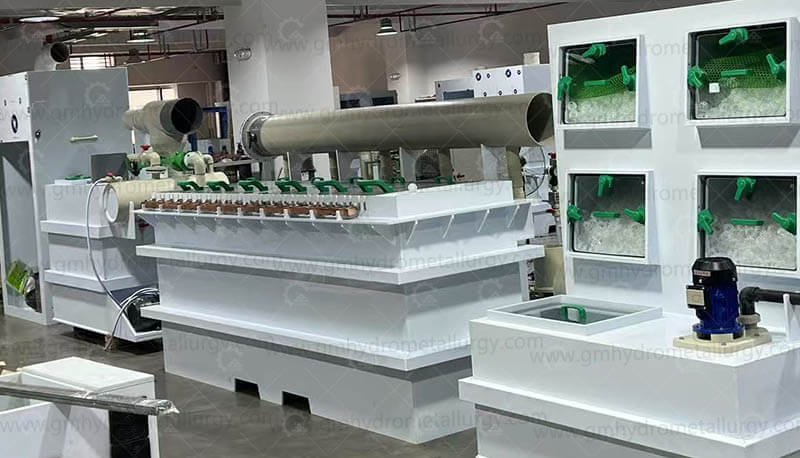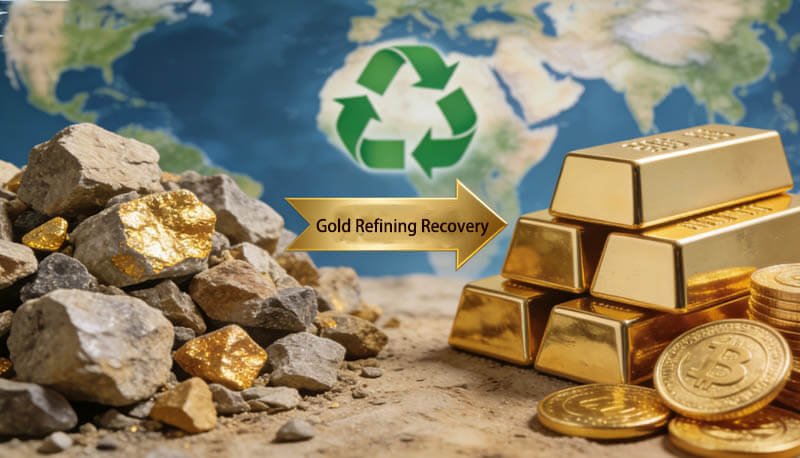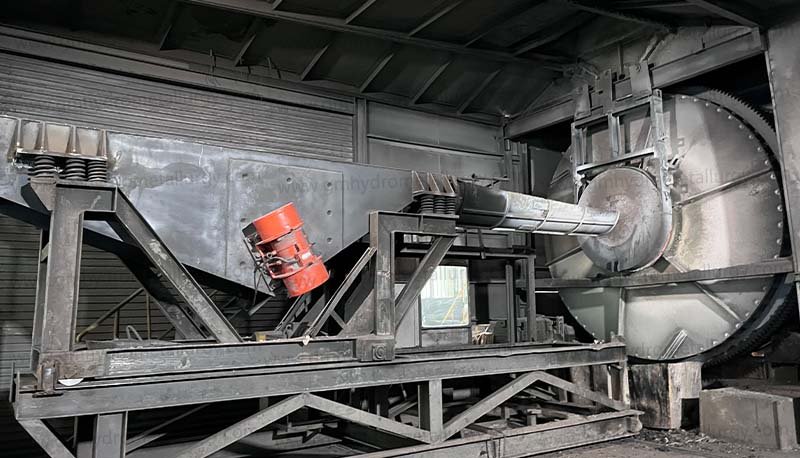1. Principles of Copper Refining
The principle behind copper refining lies in separating and purifying copper from its ores, which contain low concentrations of copper. This is achieved through various chemical and physical methods.
The most commonly used method is pyrometallurgy, which includes flash smelting, converter treatment, and pyrometallurgical processes.
Flash Smelting: This process uses a high-temperature and high-pressure reactor where copper ore is mixed with a hot oxidizer. Under high temperatures, copper and other metals are oxidized into gases, which are then separated through cooling and condensation.
Converter Treatment: Another pyrometallurgical method involves mixing ore with sintered pellets, adding fuel and oxygen, and reacting them at high temperatures to separate copper from other metals.
Pyrometallurgy: This is one of the earliest methods applied, involving heating a mixture of copper ore and coke at high temperatures to separate copper from other metals. Although this method has been largely replaced by more efficient and environmentally friendly approaches, it is still used in certain circumstances.
2. Process of Copper Refining
Copper refining involves several steps including mineral processing, crushing, flotation, sintering, smelting, and refining. Among these, sintering and smelting are the most critical and energy-intensive steps.
Sintering: Involves mixing ore with other materials and thermally treating them at high temperatures, causing partial melting and forming spherical pellets known as sintered balls. These enhance reaction rates and separation efficiency during the smelting process.
Smelting: This step mixes sintered balls with other materials and reacts them at high temperatures to separate copper from other metals. Due to its high energy consumption, this process requires efficient equipment and methods. Ultimately, purified copper is produced in various forms such as copper plates, wires, pipes, and alloys.
3. Applications and Importance of Copper Refining
Copper is an essential industrial metal with wide applications in construction, telecommunications, power, transportation, electronics, and aviation. Its excellent electrical and thermal conductivity make it ideal for producing various types of wiring, cables, motors, and transformers. Additionally, copper serves as an important alloy component, enhancing performance and corrosion resistance when combined with other metals.
In summary, copper refining is a crucial metallurgical process that provides high-quality copper and alloys for industrial production. As technology advances and demand increases, copper refining techniques will continue to evolve and improve.






